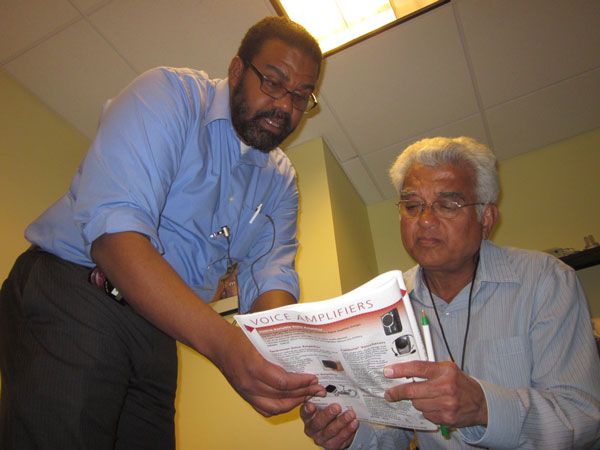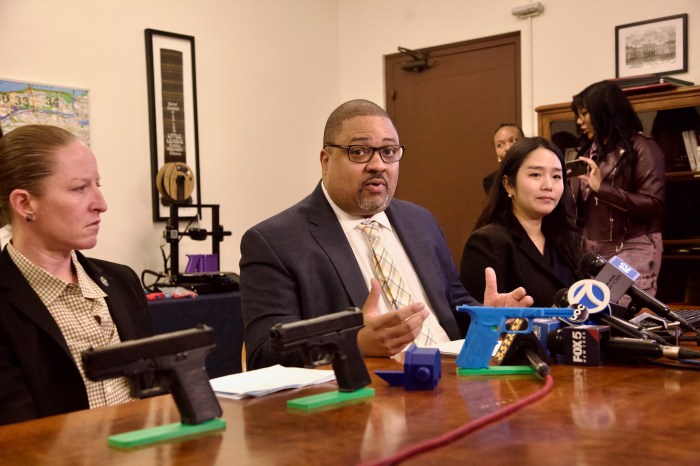
BY ZACH WILLIAMS | Ringing in the ears is not always a cause for much concern, but it underscores the need to pay attention.
May is Better Hearing and Speech Month, and one non-profit organization in Lower Manhattan kicked it off on April 26 by sounding the closing bell at the New York Stock Exchange. As technology improves and medical researchers gain new understanding of hearing impediments, the Center for Hearing and Communication (C.H.C.) is striving to reach out to local residents of all ages, particularly this month.
Approximately 38 million Americans suffer from hearing impairments — approximately 40 percent of which go undiagnosed, especially among the elderly, C.H.C. data shows. One in three people over the age of 65 years old experience hearing loss; that rate increases to two out of three among seniors 75 or older.
A wide variety of hearing impediments can be overcome with proper treatment, but only if those afflicted are aware of treatment options, according to C.H.C. experts. While ringing in the ears is one example of a warning sign of hearing loss, often it is only with a hearing screening that problems are detected.
C.H.C. aims to lower the volume of cases among local residents through free hearing screenings, free caption phones and educational programs offered throughout the month.
Early diagnosis is crucial to ensuring that treatment can be most effective, yet many people push it off because of economic and social concerns, according to C.H.C. Executive Director Laurie Hanin.
“There is definitely still a stigma about hearing loss that there isn’t about eyeglasses,” said Hanin. “People deny that they have a hearing loss problem. Typically, people wait about seven years until they think they have hearing loss and do something about it.”
A lack of understanding about hearing loss and its ramifications also contributes to the number of undiagnosed cases, she noted.
Deafness is commonly known as an inability to hear sounds. Hearing loss, meanwhile, can take many forms, including a diminished ability of people to discriminate between sounds. Both can contribute to depression and cognitive decline among the elderly, according to recent research. Technology has kept pace with the increased scientific understanding, said Hanin, a trained audiologist.
“In the last maybe five to ten years, there has been a tremendous increase in technology such that hearing devices work far better than they used to,” she said.
The free caption phone, for example, dramatically cuts down on the inaccuracy that afflicted prior models, in part because a human transcriber works on the line.
Slick hearing aids enable Terrence Williams, 45, to scarcely skip a beat nowadays in his work as assistant director of C.H.C.’s technology department. Regular screenings are necessary in order to diagnose hearing impairments that often go unnoticed, he said.
Williams, who had trouble hearing early on, didn’t attend to his affliction until age 35, when he discovered he had high-frequency hearing loss. The impairment makes it difficult for him to pick up on high-pitched sounds like footsteps — even though sounds lower on the spectrum were relatively problem-free.
“People were constantly sneaking up on me,” he said. “I was constantly being surprised that someone was right behind me.”
Services at the Center for Hearing and Communication are not limited to diagnosing hearing loss and providing assistive technology. The nonprofit also offers speech therapy, support groups, hearing aid repairs and English classes for non-native speakers.
The C.H.C.’s holistic approach has many clients thankful, including Vijay Shah of Queens, who has utilized its services since 2006. Prior to receiving a cochlear implant, a medical procedure that allows a hearing aid to bypass internally damaged areas of the ear, he had trouble hearing his wife and conducting daily business as usual. The problem became so bad that Shah’s wife had to write down what she wanted to say to him.
All of that has since changed. With the help of the implant, daily conversation is no longer a challenge for him. But he remains vigilant in improving his condition, which is an ongoing process.
“The center is beautiful,” said Shah. “They try to help you whenever they can.”
Screenings at the C.H.C., located at 50 Broadway, are held by appointment every Wednesday from 12 until 2 p.m. and from 4 to 6 p.m. For more information, call the C.H.C. at 917-305-7700 or visit its website, www.chchearing.org.

















